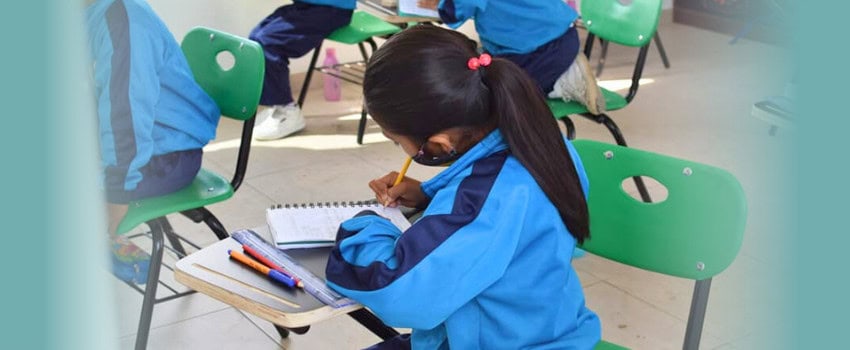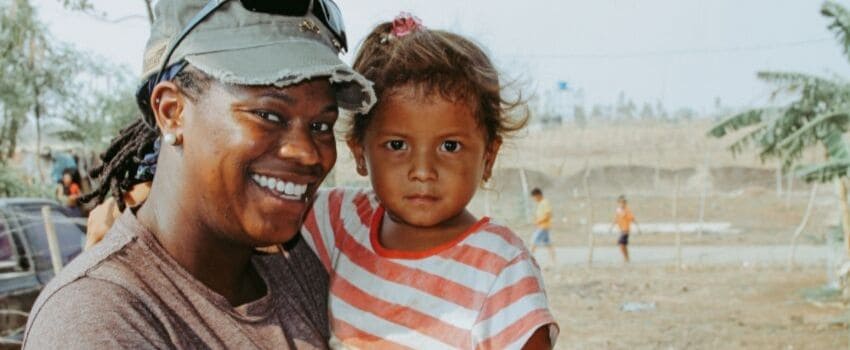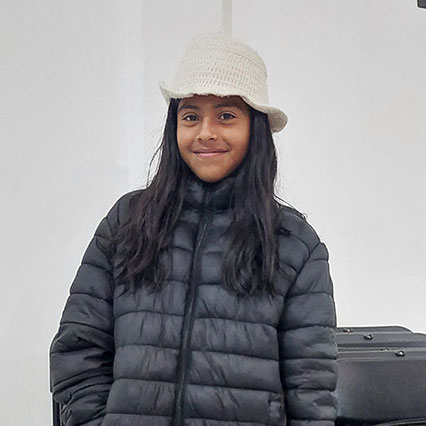I’m home from a life-changing mission trip. Now what?
A short-term mission trip is an intense experience, in more ways than one. In the space of a week to 10 days, you’re immersed with a new group of people, develop a routine and learn new tasks and skills. You’ve also been thrown into (and pulled out of) a culture that may have been completely different from your own. Along with these practical changes, you’ve also probably experienced a range of emotions, from frustration to encouragement, to heart-wrenching realizations and encounters with God. Your values and assumptions about life may even be in flux.
Your 3 options
When you land back at home and suddenly find yourself dropped back into your old life, it’s easy to feel a bit lost or let down. In fact, we find there’s a bit of a pattern to the routes people take with what they learned on the mission field once they come back home.
- You can forget it all happened, and go back to the status quo. While this is understandable—sometimes it’s easier to ignore uncomfortable feelings—it won’t help you or anyone around you grow!
- You can become frustrated with the people around you for not understanding what you’ve experienced and been through. You’re undergoing shifts in the way you see the world and what you value, and may feel disdain toward others who aren’t changing in the same way. While this too is understandable, you’ll help others around you much more by sharing your experience.
- You can find a balance—integrating what you learned into your life and sharing with those around you, and finding new ways to serve. This will allow God to use the trip to shape your heart and life.
We’d love you to choose option 3!
Where do you start
That being said, it can be hard to know where to start. The life you were experiencing “on mission” is so different from everyday life. But, we feel sure that you can use this trip to let the Lord teach you how to live your life on mission. Here are a few ideas for how you might begin that process.
Reflect or journal about how God changed you, what He showed you, or what you learned.
Did you realize you had a new skill or gift that you can put to use serving in your own church or community? Was your perspective changed, perhaps on poverty, ministry, or what your role is in the world? Did God ignite a passion in you for a particular issue? Take time to reflect on these changes and invite God to tell you more in prayer.
Whatever you learned, act on it.
How could you apply some of these new passions, interests, or new knowledge to your life at home? Is there a cross-cultural ministry or nonprofit you could volunteer with? Did you discover you love working with kids? Perhaps you could volunteer at a school. Was your perspective changed on money? Take a look at your budget and invite God to show you where you should make changes. Taking action, really applying the lessons you’ve learned to your life will help bring the experience and opportunity of your trip home with you.
Keep in touch with your team.
It’s imperative that you communicate with your other team members after you return home. You had a unique and intense experience together, and no one else in the world will understand what you experienced as much as your team member will. You may want to schedule a reunion or get-together a few weeks after you return to process your trip together and enjoy your new or strengthened friendships. You and your team members will need each other as you continue the process of returning home and living in the change God has brought to your life.
Share with others.
Sharing your experience with others can both help them grow by hearing about another culture, and how God has been at work…and it can help you grow by processing what happened aloud, and drawing lessons and plot points out of your week away. Knowing where to start can be difficult. As you’re coming home, we encourage you to think through 1 or 2 stories that capture what God did during your trip. Think about how you would tell it in 1 or 2 minutes, and what you might say when your friends or family invite you to share more.
Continue making a difference back home.
Many community development programs require ongoing support to be sustainable. This could be through prayer or child sponsorship. If you feel God calling you to invest even deeper in the location you just returned from, know that you can continue doing that even when you’re back home.
In his book You’re on a Mission: A 31-Day Devotional Around the World, author Joseph L. Williams said this about finishing strong:
“You have a story that others need to hear. The events, struggles, and triumph of your life will bless and encourage others. You can also share about what the Lord is doing around the world. From one-on-one to your Bible study group to your workplace, sharing with others doesn’t need to be some formal speech or take place at some official event. Everyday life is where sharing most easily happens.”
God’s Plan for You
The most important thing you can do is to remember that God does not want to STOP using you just because you’re back at home! In fact, His plan for your mission trip may have been more about the other 51 weeks in the year…not the 1 you spent away. Keep praying, and keep asking him to show you what he’s teaching you, how you can serve, and who He is growing you to be through this experience.
God will help move you forward into the life He has called you too. We can’t wait to see what you do next!









